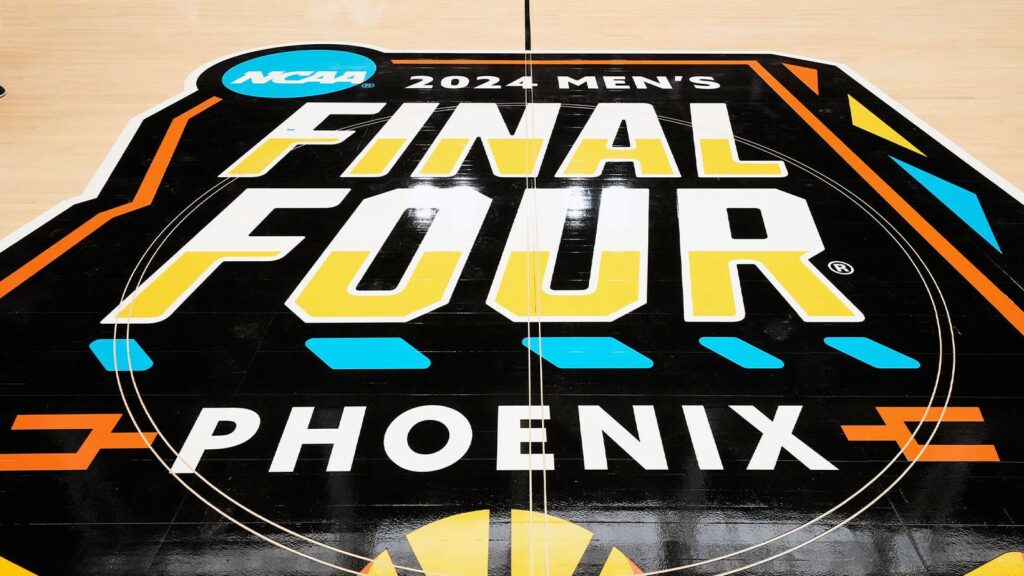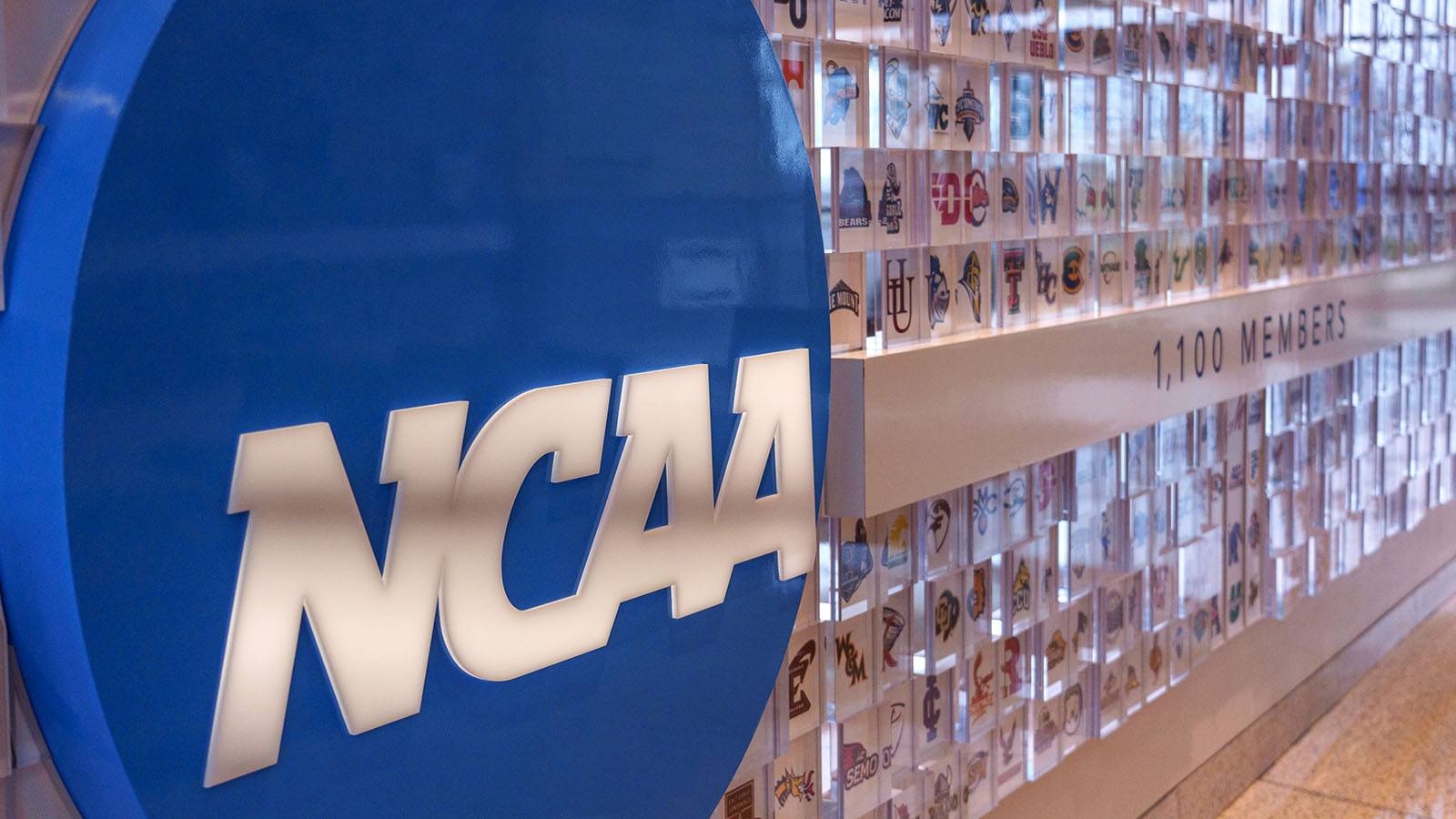Banning College Prop Betting Not As Easy As It Sounds: Analysis

Promo Code: BOOKIES
NCAA president Charlie Baker wants a nationwide ban on college player prop wagers. But it’s not as simple, or as probable, as he would like it to be.
"Sports betting issues are on the rise across the country with prop bets continuing to threaten the integrity and competition and leading to student athletes and professional athletes getting harassed. The NCAA has been working with states to deal with these threats and many are responding by banning college prop bets," Baker said in a statement last Wednesday.
The next day, Baker was back home in Boston. The former governor of Massachusetts joined with state gaming officials ahead of the NCAA Sweet 16 games at TD Garden to launch a push to address of harm caused by sports betting among youth, specifically those who bet between the ages of 18-21.
Baker played high school basketball and was on the JV squad at Harvard. History likes to play jokes on us all. Baker graduated from Needham High School outside of Boston in 1975 and was a classmate of current New Jersey Gov. Phil Murphy.
It was Murphy’s lawsuit vs. the NCAA that eventually cleared the way to national sports betting via the Supreme Court PASPA decision in 2018.
Bakers push to ban college player props is not new. He redressed to coincide with the NCAA Tournament. More than $2.17 billion will be wagered across the 134 total games in the men’s and women’s tournaments, according to the American Gaming Association. That’s more than 70% higher than the $1.5 billion legally bet on Super Bowl 58.
The Key Facts – Banning College Player Prop Bets

Why is the NCAA looking to ban college props? It believes these wagers pose threat to the integrity of college sports. In part because athletes are being harassed by both gamblers and others when it comes to inside information. And they are easily accessible to potential gamblers and their money. The NCAA is also facing multiple threats to its future, both inside and outside the courtroom. This gives it some needed positive publicity in the eyes of many.
Why Is This A Big Deal? Legal sports betting operators nationwide would lose about $200 million in annual revenue if there was no college prop betting, according to JMP Securities. That represents 12.5% of the $1.6 billion the books receive in college betting revenue each year.
What Can We Expect? Colorado and Massachusetts prohibited college prop betting when they enacted sports betting. Ohio, Maryland, and Vermont have all halted the practice in 2024. Nearly 20 other states have limits or restrictions on some college prop wagers
What About A Lawsuit? The NCAA has a terrible track record in court. It has lost multiple landmark cases, many on antitrust grounds. It lost the Supreme Court case in 1983 (Board of Regents of the University of Oklahoma) that cleared the way for all college football games to be televised. It lost the Supreme Court case (Murphy) that opened the door to nationwide sports betting in 2018. It lost the 2015 case (O’Bannon) in which it was found to have been profiting from the name, image, and likenesses (NIL) of college athletes. It lost the case. (Alston) – by 9-0 vote – in 2021 that allowed college athletes directly to be compensated for NIL. And has been hit with an injunction by a federal judge in a lawsuit filed by Tennessee and Virginia over NIL regulations.
Why Can’t The NCAA Make This Happen? Betting regulations are governed by each state. While there is a push for some federal regulation, college prop wagers are not part of that discussion. As an organization, it has never been weaker. In addition to its struggles in court, it faces a real challenge from the SEC and Big Ten. Talk of those conferences wanting to leave the NCAA and establish their own rules has moved beyond the message boards and into the mainstream.
Baker Banned College Props In Massachusetts

When Baker was governor of Massachusetts, he signed the state’s Sports Wagering Act of 2022 into law. Massachusetts legislators banned wagering on college props as part of the bill enacting sports betting in the state. Mobile and retail betting began in Massachusetts in early 2023.
During his appearance in Boston, Baker said he has spoken with athletes who have expressed concerns about being pressured by bettors and others for inside information - or worse.
“The message I kept getting from them is there’s so much of this going on, it’s very hard for us to just stay away from it,” he said, according to The Associated Press.
Student-athletes told him they were approached by classmates and friends who wanted to know "How’s so-and-so doing? Is he or she going to be able to play this weekend? What do you think your chances are?”
Everything old is new again.
“It was the exact same conversations I was having with my classmates and schoolmates in the ’70s. But back then it was just chatter in the cafeteria or the dining hall," added Baker, about his days at Harvard. “Now it’s currency.”
Proximity To College Athletes Major Concern

It is the proximity that college athletes share with their fellow students on campus, and their activity on social media, that would make them more vulnerable to influence from their peers who may be seeking information. In contrast, professional athletes are often much more insulated from the public at large.
Both college and pro athletes hear criticism from bettors who find themselves on the wrong side of an outcome, whether it comes in the form of yelling in the stands, venom on social media, or worse.
The NCAA found that one out of three student athletes has been harassed by bettors and one of 11 students has a gambling problem.
NCAA data notes that 58% of 18-to-22-year-olds have engaged in at least one sports betting activity. The Massachusetts Department of Public Health added that nearly 50% of middle school students have engaged in some form of gambling,
This action is happening in places where sports betting is legal, and not legal.
Much of the activity is done through offshore/illegal sites, wagers with retail bookmakers, and in the form of person-to-person gambling, including card games.
“It's basically a 50-state issue even if it's only legal in 38. And if you think kids under the age of 21 aren't doing this, you're kidding yourselves,” Baker said.
Regulation Not a Cure-All For Gambling Concerns

Illegal gambling is still widespread despite legalization. And those areas are unregulated, so game fixing continues to be more likely to occur in the illegal space.
Each time the legal space bans any activity, it merely grows in the illegal space. That doesn’t mean regulation is not necessary. But overreach has its dangers.
And therein lies the greater problem.
Gambling and sports go back to the dawn of sports.
College basketball has been roiled by betting scandals throughout the past 70 years.
The National League almost shuddered in 1877, one year after it began, because of a betting scandal. Two years before gamblers fixed the 1919 World Series, there was a betting riot at Fenway Park. Nearly 35 years before any betting allegations were made concerning Shohei Ohani’s translator, Pete Rose was banned for life after betting on baseball.
The recent betting irregularities surrounding prop bets on Toronto’s Jontay Parker were unearthed by operators and third-party security contractors. Multiple legal bookmakers were shocked that DraftKings, who was targeted by the larger-than-normal wagers on Parker’s numbers, did not immediately shut down the market once they received their first five-figure wager.
"Steam happens a lot on information and if someone knew he was compromised and bet it accordingly I don’t really see how there is anything illegal about that,” one long-time veteran legal oddsmaker told bookies.com. “As long as the player wasn’t involved, this kind of thing happens in the gambling space. Books can certainly report it and it can be investigated but unless the player was found to be involved and benefitted. If it is found that wagers were being made by people directly tied to Porter, that’s a different story. Just from my view and what I have seen reported on Porter so far, I think it’s a non-story. If (DraftKings) or anyone else got really banged up on his props, it’s not good risk management on their part. If you are taking a lot of wagers one way or getting requests for five-figure player props, your first reaction should be to take it off the board until you figure out what is happening. “
About the Author

Bill Speros is an award-winning journalist and editor whose career includes stops at USA Today Sports Network / Golfweek, Cox Media, ESPN, Orlando Sentinel and Denver Post.
 TonyBet Casino Sign Up Bonus Canada December 2025: Get $1,000 & 100 Free Spins
TonyBet Casino Sign Up Bonus Canada December 2025: Get $1,000 & 100 Free Spins